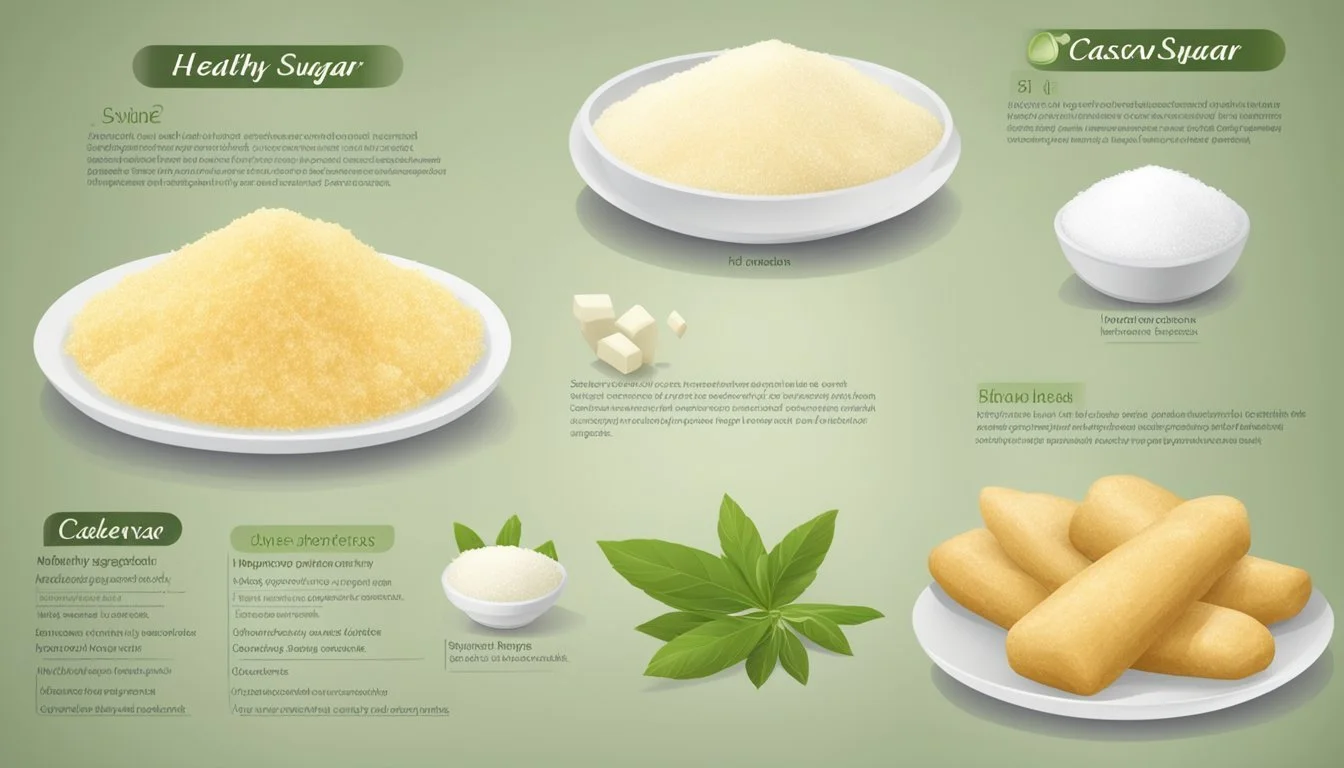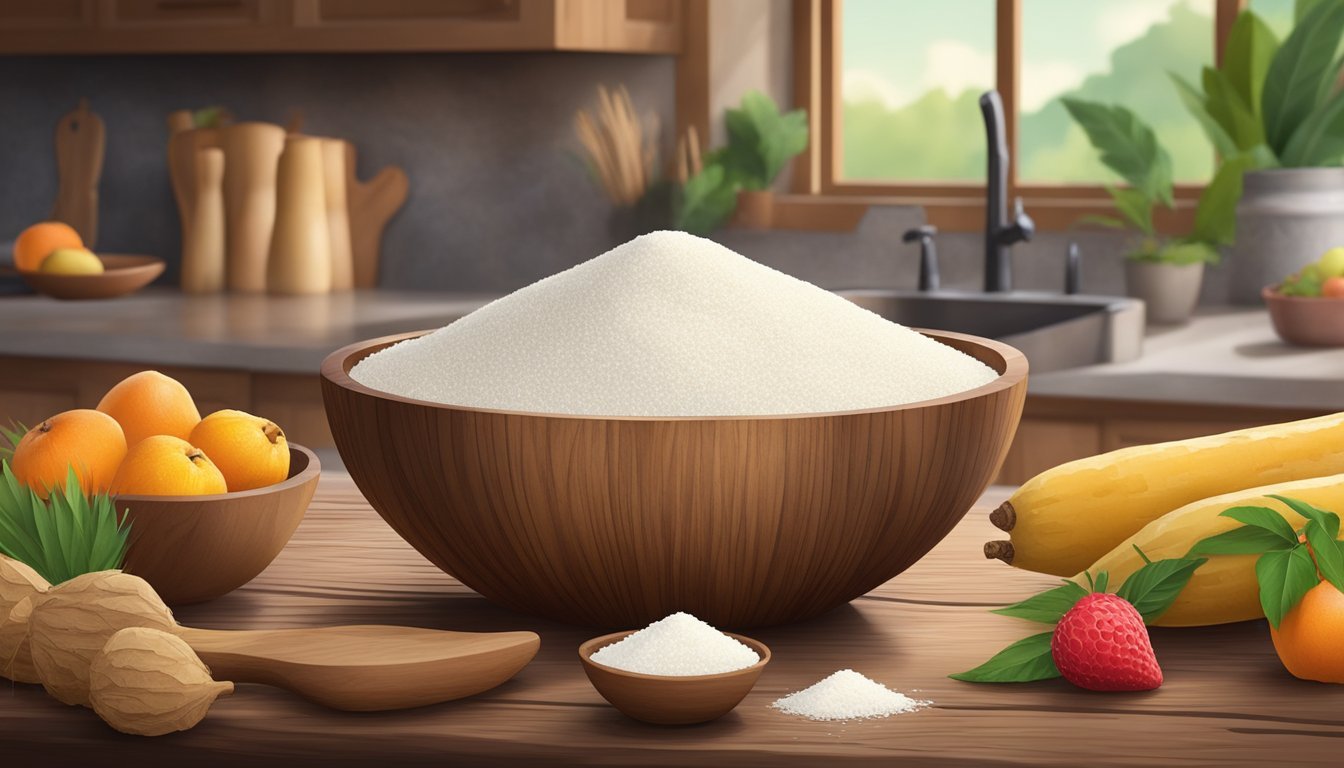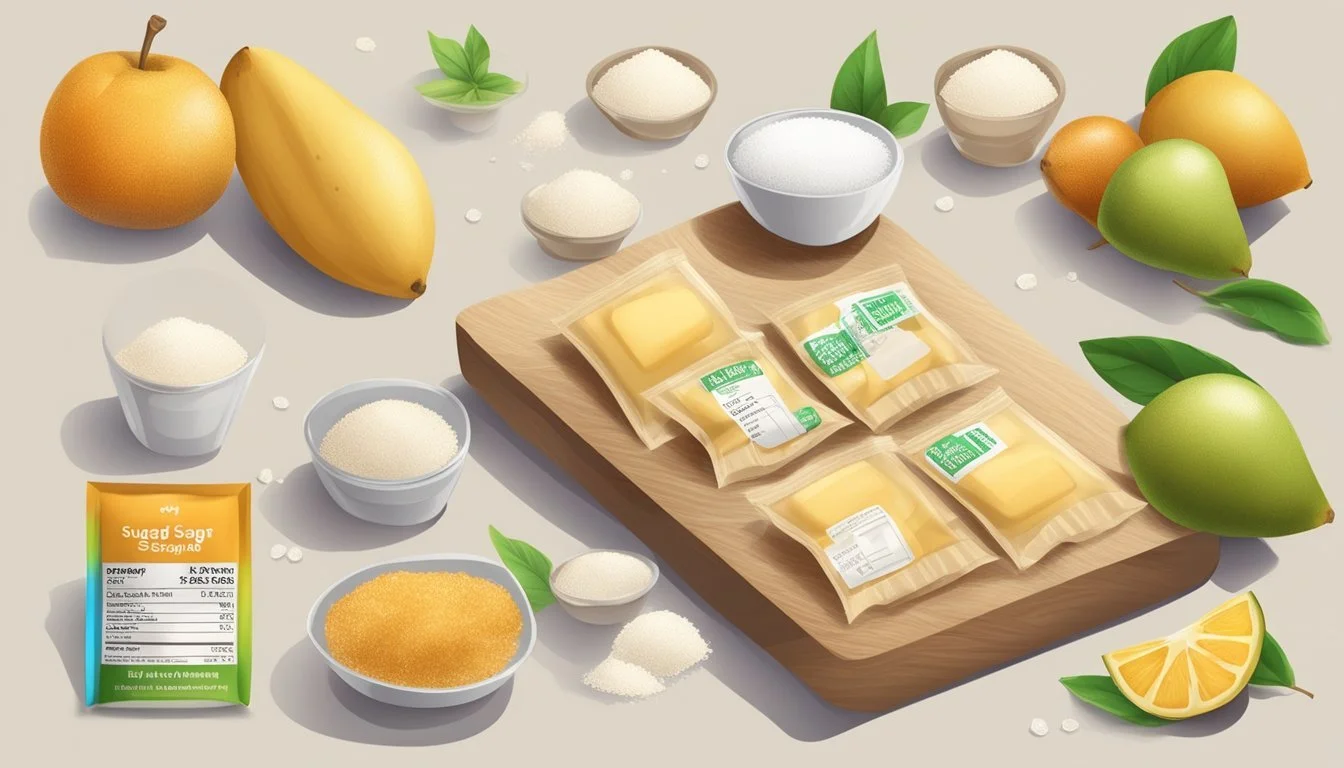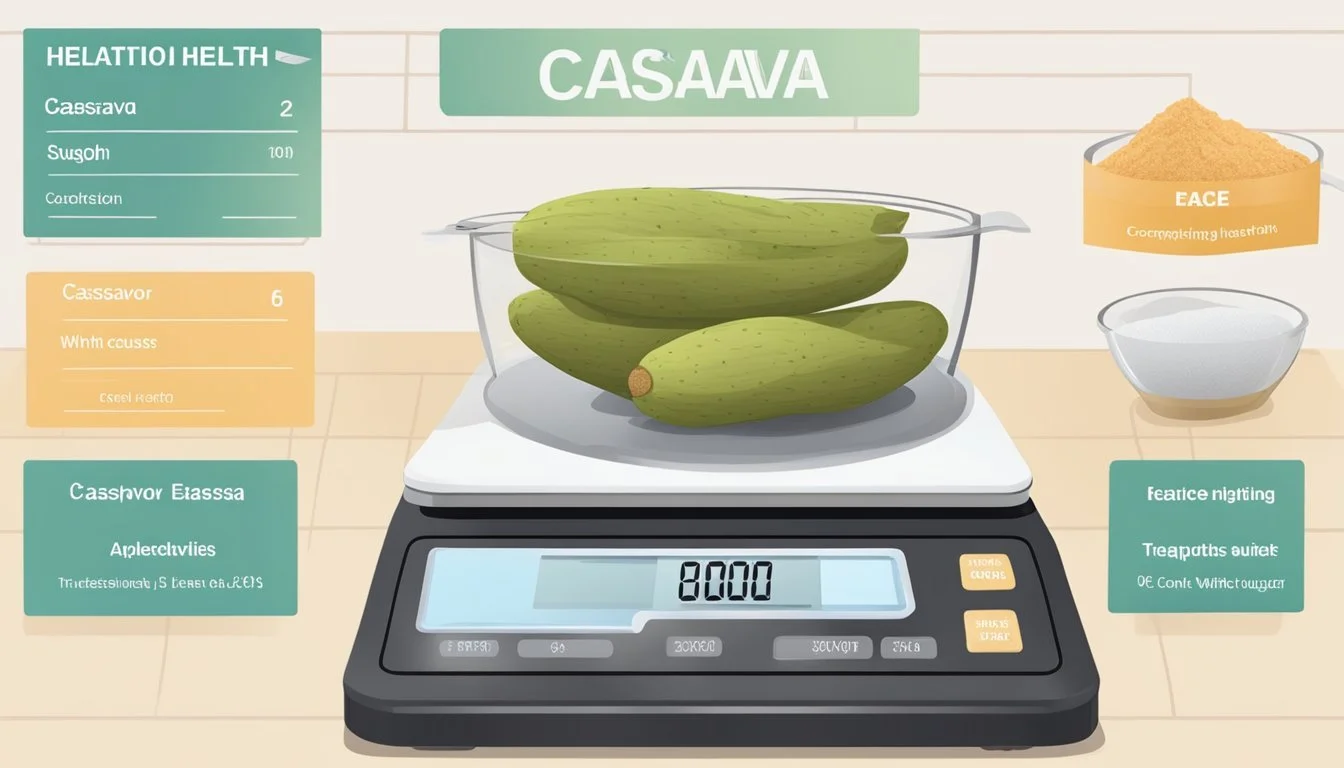Is Cassava Sugar a Healthy Alternative to White Sugar?
Unveiling the Facts
When considering healthier alternatives to white sugar, cassava has emerged as a potential substitute. Derived from the root of the cassava plant, this natural sweetener boasts a low glycemic index of 46, which indicates that it will not spike blood sugar levels as rapidly as white sugar might. For individuals managing diabetes or those mindful of their blood sugar fluctuations, cassava can be a more stable source of sweetness.
Cassava is not just a one-dimensional sweetener; it provides a variety of culinary uses ranging from cassava flour for gluten-free baking to cassava juice for natural sweetening in beverages. The versatility of cassava products allows them to be incorporated into a multitude of recipes as a natural sweetener. While it is essential to control portion sizes and consumption frequency to avoid excessive calorie intake, using cassava as an alternative to white sugar can be part of a balanced diet.
The health benefits of cassava sugar as opposed to white sugar hinge not only on its lower glycemic response but also on the presence of some nutritional content, such as minerals, which are absent in the common table sugar. However, it is important to note that while cassava provides these benefits, moderation is key, and it should be consumed as part of a varied and balanced diet.
Cassava Sugar: An Overview
Cassava, a root vegetable native to South America, presents an alternative to conventional sweeteners. Cassava sugar, primarily extracted from the cassava plant, is gaining attention as a natural sweetener. Unlike typical granulated sugar obtained from sugarcane or sugar beets, cassava sugar offers a different nutritional profile.
Cassava-based products, such as syrup, are derived from the cassava root and positioned as healthier sweetening options. The use of cassava as a sweetener involves processing the root to yield various forms of sugar, including a syrup with no fructose.
A distinct advantage of cassava sugar is its suitability for those with specific dietary requirements. Being naturally gluten-free, it caters to individuals with gluten intolerance offering an alternative to wheat-based sweeteners.
The aspect of sustainability in cassava cultivation adds to its appeal. Cassava plants are known for their resilience, requiring less water compared to other staple crops, making them a more sustainable choice in areas with limited water resources.
In the context of nutrition, evidence suggests that cassava has a moderate glycemic index (GI), meaning that it raises blood sugar levels more gradually than white sugar would. This attribute potentially makes it a more favorable option for people with diabetes, as indicated by its lower GI value.
Attribute Description Gluten-Free Yes, suitable for those with gluten intolerance. Glycemic Index Moderate, considered better for blood sugar management. Sustainability Requires less water, resilient to grow in diverse conditions. Nutritional Value Contains essential vitamins and minerals not found in plain sugar.
Cassava sugar's low glycemic index and absence of gluten make it a compelling substitute for traditional white sugar, especially for individuals seeking a health-conscious sweetener.
Nutritional Profile of Cassava Sugar
Cassava sugar refers to sweeteners derived from the cassava plant, which are characterized by particular nutritional constituents that could influence their suitability as an alternative to white sugar.
Vitamins and Minerals
Cassava is a source of a variety of essential vitamins and minerals, though the specific nutrient composition can vary depending on the preparation process. Typically, cassava can provide vitamin C, manganese, copper, potassium, along with small amounts of vitamin B1, B6, and B3. These micronutrients are significant for maintaining various bodily functions, though they may be present in variable amounts in cassava sugar.
Vitamin B1 (Thiamine): Essential for energy metabolism.
Vitamin B3 (Niacin): Important for DNA repair and metabolism.
Vitamin B6 (Pyridoxine): Vital for amino acid metabolism.
Vitamin C: Supports the immune system and acts as an antioxidant.
Manganese: Plays a role in bone formation and blood clotting.
Copper: Needed for red blood cell formation.
Potassium: Crucial for fluid balance and nerve function.
Caloric Content and Carbohydrates
Cassava sugar is primarily composed of carbohydrates, contributing the bulk of its caloric content. However, the sweetener has a minimal amount of protein and fat. A standard serving of raw cassava contains a significant proportion of carbohydrates which translates into calories, with a 3.5-ounce serving of cooked cassava root providing about 191 calories.
Natural Sugars and Glycemic Index
Unlike standard table sugar which contains fructose, cassava sugar is primarily composed of glucose and maltose, with a portion of longer-chain carbohydrates. It is typically fructose-free, which is beneficial for people with fructose intolerance. As for the glycemic index (GI), cassava sugar has a moderate to high GI value, implying that it can affect blood glucose levels. The glucose and maltose components have GI values of 100 and 105 respectively, pointing towards a rapid elevation in blood sugar following consumption.
Glucose: Has a glycemic index of 100.
Maltose: Slightly higher GI than glucose at 105.
While the raw cassava is high in carbohydrates, it is naturally low in sugars, which are not concentrated in cassava sugar products unless additional processing concentrates them. The term cassava sugar is often used interchangeably with cassava syrup, which, regardless of its lower fructose content, should still be consumed in moderation due to its caloric content and potential impact on blood glucose levels.
Health Implications
Cassava sugar, sourced from the cassava root, is often marketed as a healthier alternative to white sugar. This section examines its impact on aspects such as blood sugar regulation and dental health, to its role in weight management and overall nutrition.
Blood Sugar Regulation
Cassava sugar has a different composition from white sugar, as it is lower in calories and carbohydrates. Dietitians note that it is free from fructose, which may be beneficial for individuals with fructose intolerance or those managing diabetes. Because of its carbohydrate profile, cassava sugar may affect blood sugar levels differently, potentially offering an advantage in preventing insulin resistance.
Dental Health
Tooth decay and cavities are often linked to high sugar consumption. Cassava sugar's lower caloric content may contribute less to dental issues compared to white sugar. However, moderation is key, as any sweetener can promote dental health issues if consumed in excess.
Weight Management
As a lower-calorie sweetener, cassava sugar might be better suited for those concerned about weight gain and obesity. Its potential to satisfy appetite with less quantity could help in maintaining a calorie deficit. Yet, its efficacy must be balanced within a balanced diet and regular physical activity.
Nutrition and Diet
Although lower in calories, cassava sugar provides minimal nutritional benefit, containing negligible amounts of protein, fat, or cholesterol. Those interested in consuming sweeteners with more nutrients might consider options like raw honey or pure maple syrup. Overall, a registered dietitian can offer personalized guidance to ensure the inclusion of cassava sugar aligns with one's nutritional goals and supports a healthy dietary pattern without increasing risks for heart disease or stroke.
Cassava Sugar Versus Other Sweeteners
In the quest for healthier sweetening options, cassava sugar emerges as a contender with its distinct nutritional profile compared to traditional refined sugars and other sweetener alternatives. This section will analyze cassava sugar in relation to other sweeteners, assessing its strengths and weaknesses.
Comparison with Refined Sugars
Cassava sugar is distinct from refined sugars such as white sugar and table sugar due to its nutrient content. Unlike refined sugars, which offer no essential nutrients, cassava provides vitamin C, potassium, and dietary fiber. Cassava root possesses a lower glycemic index (GI) than refined sugars, which implies a slower release of glucose into the bloodstream, reducing potential blood sugar spikes.
White Sugar (Refined)
Glycemic Index: High
Nutrients: Minimal
Cassava Sugar
Glycemic Index: Moderate (approximately 23% lower GI for Vitamin C from cassava)
Nutrients: Contains Vitamin C, Fiber, Potassium
Natural Sweetener Alternatives
When cassava sugar is compared to other natural sweeteners like honey, maple syrup, and agave nectar, it offers a unique advantage due to being fructose-free, beneficial for those with fructose intolerance.
Honey and maple syrup contain more nutrients compared to cassava.
Agave nectar is lower in nutrients but has a similar carbohydrate and calorie profile to table sugar.
Many natural sweeteners, including dates, monk fruit, and date sugar, have lower GI scores and can provide additional nutrients.
Artificial Sweeteners and Sugar Alcohols
Artificial sweeteners such as sucralose (Splenda), aspartame, and saccharin often have negligible calories and do not raise blood sugar levels. However, they lack the nutritional benefits of cassava sugar and can have other health implications.
Sugar alcohols like erythritol, xylitol, and sorbitol have lower glycemic effects than refined sugar, which may make them desirable substitutes for managing blood glucose.
Artificial Sweeteners
Glycemic Index: None (or very low)
Nutritional Benefits: None
Sugar Alcohols
Glycemic Index: Lower than refined sugar
Nutritional Benefits: Lower calories, can be tooth-friendly
Role in Processed Foods
Cassava sugar's syrup form can easily substitute liquid sweeteners in beverages and baked goods, while its powdered form integrates well into dry mixes. With a movement towards less added sugar in processed food, cassava offers an alternative. However, processed foods often contain other ingredients that may diminish the potential benefits of using a natural sweetener like cassava. It's important to read labels and ingredient lists carefully, as processed foods often incorporate different types of sweeteners, including high fructose corn syrup, brown rice syrup, and molasses with varying health implications.
Culinary Uses of Cassava Sugar
Cassava sugar, derived from the root vegetable cassava, is gaining popularity as a natural sweetener in various culinary applications. It is presented in either syrup or powdered forms, both offering a distinct sweetness profile to recipes.
When it comes to baking, cassava sugar can be an excellent substitute for white sugar. It imparts a mild flavor, contributing to the taste without overpowering other ingredients. Bakers can use it in cakes, cookies, and bread, leveraging its gluten-free property as a bonus for those with dietary restrictions.
Boiling cassava roots releases their natural sweetness, presenting another method of incorporating cassava sugar into dishes. This technique is often used for making tapioca, a starch extracted from cassava. Tapioca pearls, once sweetened, become a key ingredient in puddings, bubble teas, and other desserts.
Recipes often suggest using cassava syrup as a sweetener in beverages, including smoothies and cocktails.
For a direct comparison, sugar cane or cane sugar, which are highly processed, can be replaced by cassava sugar in nearly all culinary scenarios.
Here is a concise table that offers guidelines on substituting cane sugar with cassava sugar:
Cane Sugar Cassava Sugar (Powder) Cassava Sugar (Syrup) 1 cup 1 cup 3/4 cup 1 tbsp 1 tbsp 3/4 tbsp 1 tsp 1 tsp 3/4 tsp
When using cassava sugar in place of cane sugar, it's important to remember to adjust the liquid content in the recipe if you're using syrup, as it could alter the moisture balance. For the best results, trial and error may be necessary to achieve desired sweetness and texture.
Considerations for Use
When exploring cassava sugar as an alternative sweetener, consumers should consider labeling accuracy, potential dietary restrictions, and the broader impact of their choice on sustainability.
Labeling and Marketing Claims
Labeling Accuracy: Manufacturers might market cassava sugar as a natural sweetener, which can be appealing to those looking to reduce their consumption of refined sugars. However, users should verify these claims by checking the ingredients list to ensure the product is free from added sugars or other additives.
Nutritional Profile: Cassava-based sweeteners typically provide similar calorie content to other sugars but might lack significant nutritional benefits. It is essential for labels to reflect this accurately, and for consumers to understand that, like other sugars, cassava sugar does not offer substantial vitamins or minerals.
Allergies and Dietary Restrictions
Gluten-Free: Cassava sugar is inherently gluten-free, making it suitable for those with gluten sensitivities or celiac disease. Its use should be clearly indicated on labels to assist consumers who must adhere to strict dietary guidelines.
Allergen Consideration: While not common, some individuals may have allergies to cassava. Products containing cassava should have clear labeling to prevent adverse allergic reactions.
Sustainability and Ethical Concerns
Source: Cassava sugar is often produced in regions like South America, and sustainable farming practices are essential to minimize environmental impact. Consumers should look for products that emphasize sustainability in their production processes.
Fair Trade: The ethical sourcing of cassava, including fair labor practices and equitable compensation for farmers, is crucial. Products bearing a fair trade label signify adherence to these practices, providing reassurance to ethically minded consumers.
Recommendations and Final Thoughts
Cassava sugar offers a unique profile that can cater to specific dietary needs, especially for those managing blood sugar levels. Its characteristics suggest that it can be incorporated as part of a diverse and balanced diet.
Advice from Health Professionals
Health professionals advise moderation in sugar intake, regardless of the source. For individuals with diabetes, the glycemic index of cassava sugar, due to its composition, may be less likely to cause rapid spikes in blood glucose levels compared to traditional white sugar. Dietitians, including registered dietitians, commonly underscore the importance of consulting with health professionals before making significant dietary changes, especially for individuals with health concerns like diabetes.
Inclusion in a Balanced Diet
Integrating cassava sugar into a balanced diet is feasible when done judiciously. The American Heart Association recommends limiting the amount of added sugars to prevent various health issues. A balanced diet typically contains a variety of foods rich in essentials such as vitamin A, vitamin C, zinc, selenium, folate, and antioxidants. Alternatives like cassava sugar should complement a diet containing a wide range of nutrients from whole foods, such as vegetables, lean proteins, whole grains, and frozen fruit.







